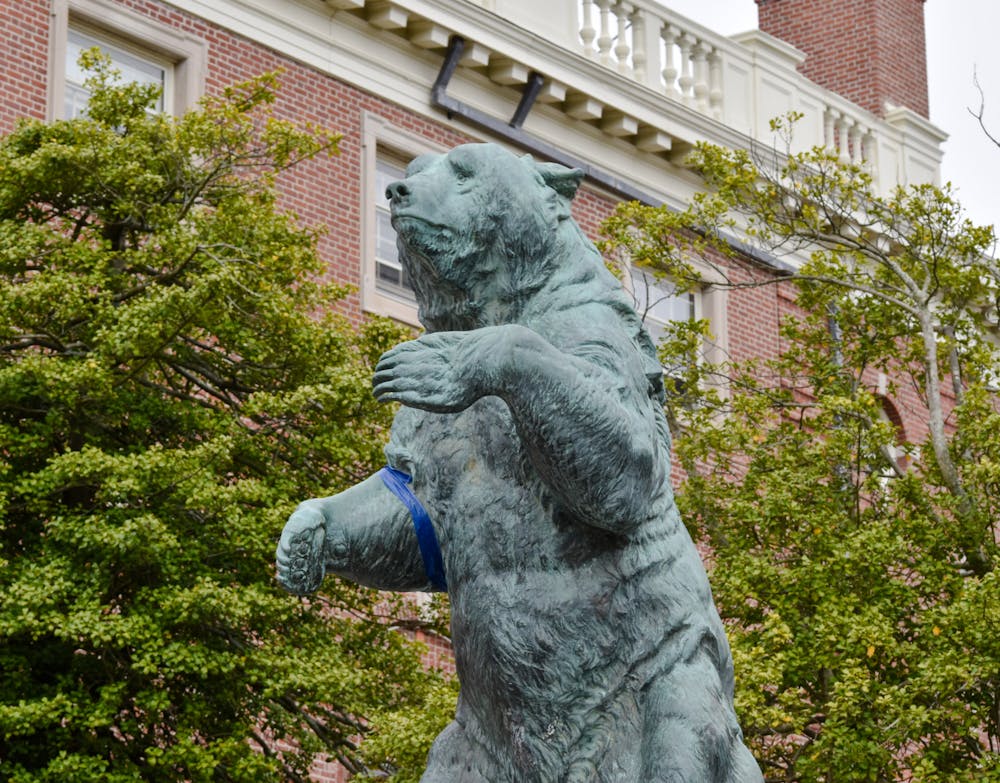Funding requests in the 2024 fiscal year budget proposal exceeded the University’s projected revenue by $115 million, Interim Provost Larry Larson said at an April 4 faculty meeting.
The University Resources Committee will seek to reach a balanced budget with an operating margin of 0% — spending as much as it makes in operating revenue — Larson said. The proposed budget will be revised over the coming month and approved by the URC and the Corporation, the University’s highest governing body, in May.
In February, budget proposals were collected from staff and faculty throughout University departments for the upcoming fiscal year, leading to the $115 million gap between projected revenue for fiscal year 2024.
However, Larson and Vice President for Finance and Chief Financial Officer Michael White were not worried about this request-revenue differential: At this time last year, the difference between budget requests and expected revenue was $68.9 million, according to Larson’s presentation at the faculty meeting. By May, the Corporation approved a balanced budget.
“We have done remarkably well in fundraising and investment returns,” White told The Herald after the meeting. “I’m not panicked about this. We’re going to bring in a balanced budget for the University.”
In the last five years, the University has posted an average operating margin of -0.6%, according to the slides. The average for peer institutions — Ivy League schools, Stanford and other top universities — was 4.8%, according to the presentation.
Both revenue and expenses have grown over the last six years. Tuition is the largest source of the University’s revenue, but Larson noted positive growth in revenue from the endowment and sponsored research. Financial aid and salaries have been the fastest growing expenditure over the last six years.
President Christina Paxson P’19 P’MD’20 offered a similar sentiment in the meeting: “We are in great shape compared to … 95% of the other universities and colleges out there,” she said.
The URC will undergo a process to consolidate budget requests throughout April for final approval on May 8. This consolidation will be guided by long-term financial goals and data-driven decision-making, according to Larson.
Larson outlined key next steps to creating a balanced budget. These include deferring budget requests for future fiscal years and finding alternative funding sources for requests, such as gifts or grants, when possible.
A long-term goal of the University is to bring in a positive surplus in fiscal years after FY24 — with a potential target of 2-3% that would allow the University to “improve housing and living conditions for students (and) offer more financial aid,” White said.
Paxson also discussed faculty comments on a proposal to establish a School of International and Public Affairs. Paxson commended the Watson Institute for International and Public Affairs as a “fabulous research institute …playing a very important role at Brown.”
Comments on the proposal highlighted the need to “better define … the relationship between Watson and the disciplinary departments” regarding joint appointments and “more fully develop the vision for what professional graduate (Master of Public Affairs) education looks like at the University.”
Paxson additionally informed faculty that all three recommendations to the University’s gifts and grants policy that were made at March’s faculty meeting would move ahead.
The recommendations called to amend the University’s Openness in Research policy, aligning grant and gift acceptance policy. Paxson “will ask the vice president for Research to amend the existing policy” effective July 1, 2023.
The other two recommendations included plans to establish a committee that reviews gifts and grants out of alignment with the University’s policies and to develop a policy for anonymous gifts and grants, The Herald previously reported.
The meeting also included a moment of silence for the passing of Meenakshi Narain, professor of physics, and Carl Kaestle, professor emeritus of education, history and public policy.

Ryan Doherty is the managing editor of digital content and vice president of The Herald's 135th editorial board. He is a junior from Carmel, NY who is concentrating in chemistry and economics. He previously served as a university news and science & research editor, covering faculty and higher education.

Sofia Barnett is a University News editor overseeing the faculty and higher education beat. She is a junior from Texas studying history and English nonfiction and enjoys freelancing in her free time.





